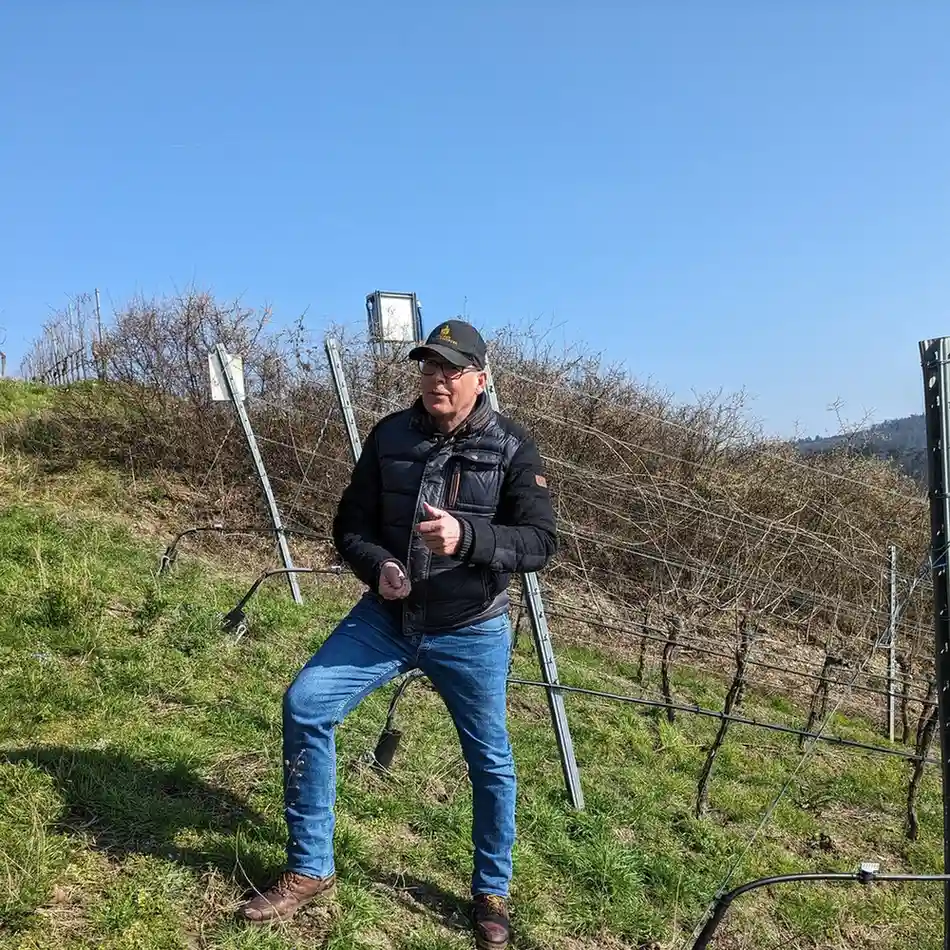Weingut Thörle
The Thörle Rieslings have taken on a clearly defined and laser-focused style, while their...

Vines have been cultivated at Burg Ravensburg in the village of Sulzfeld since 1251 making it one of the oldest vineyards in the world.
Location: Sulzfeld, Baden, Germany
Hectares: 38
Farming: Biodynamic
People: Patrick and Phillip Jacklin (owner), Claus Burmeister (managing director)
Website: http://www.weingut-burg-ravensburg.de/en
Vines have been cultivated at Burg Ravensburg in the village of Sulzfeld since 1251 making it one of the oldest vineyards in the world.
The Ravensburg is the former ancestral seat of the baron Göler von Ravensburg and is one of the most important surviving castles in the Kraichgau. The 770-year-old winery was founded in the 13th century by the Cistercian monks of Maulbronn Monastery, who came from Burgundy. In 2012, after coming under the same ownership as Weingut Heitlinger in nearby Tiefenbach, the sister estates jointly became one of Germany’s most extensive biodynamic farming operations. The two VDP estates are only ten kilometers apart, and Managing Director Claus Burmeister oversees both properties.
The vineyards cover 38 hectares surrounding the hilltop castle in Sulzfeld and include the VDP.Erste Lage site Lerchenberg, and three VDP.Grosse Lagen: Dicker Franz, Husarenkappe, and Löchle, all of which are monopoles of Burg Ravensburg. The vineyards mainly consist of Gipskeuper (gypsum marl with layers of sandstone), which favors Riesling and Lemberger (here, the term Blaufränkisch is preferred), with supplemental plantings of Burgundian varieties. Like Heitlinger, Burg Ravensburg is biodynamic since 2014. All plots are farmed individually with an average yield of 55 hl/ha. Grape harvest is by hand.
All wines are vinified in the Heitlinger cellars in Tiefenbach, newly built in 2012. Burmeister practices extended skin maceration for Riesling to achieve a depth of aroma and extract as much flavor as possible before fermentation. The technique gives the wines remarkable depth, characteristic structure, and long aging potential. The modern Heitlinger cellar utilizes pneumatic presses, and gravity is preferred over pumps to transport the grapes, must, and wine. The fermentation of Grosses Gewächse is spontaneous, and vinification and maturing occur in a combination of stainless steel tanks, large wooden barrels, and barriques. About 300,000 bottles annually. VDP member since 2012.
Weingut Burg Ravensburg Riesling trocken Baden 2022
Weingut Burg Ravensburg Blaufränkisch Baden 2020
Weingut Burg Ravensburg Blaufränkisch Sulzfeld Baden 2018
Weingut Burg Ravensburg Pinot Noir Baden 2022
Weingut Burg Ravensburg Riesling Sulzfelder Husarenkappe GG Baden 2019
Weingut Burg Ravensburg Blaufränkisch Sulzfelder Lerchenberg 1G Baden 2020
Weingut Burg Ravensburg Blaufränkisch Sulzfelder Dicker Franz GG Baden 2018
.jpg?width=750&name=thorle%20brothers%20(3).jpg)
The Thörle Rieslings have taken on a clearly defined and laser-focused style, while their...

Weingut Thörle receives consistently high scores from critics every year, and visitors to the...

Fritz Miesbauer and his team cultivate the vines and produce the wines of the Göttweig abbey. The...